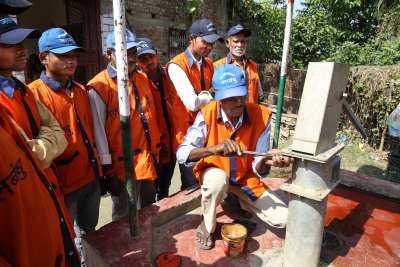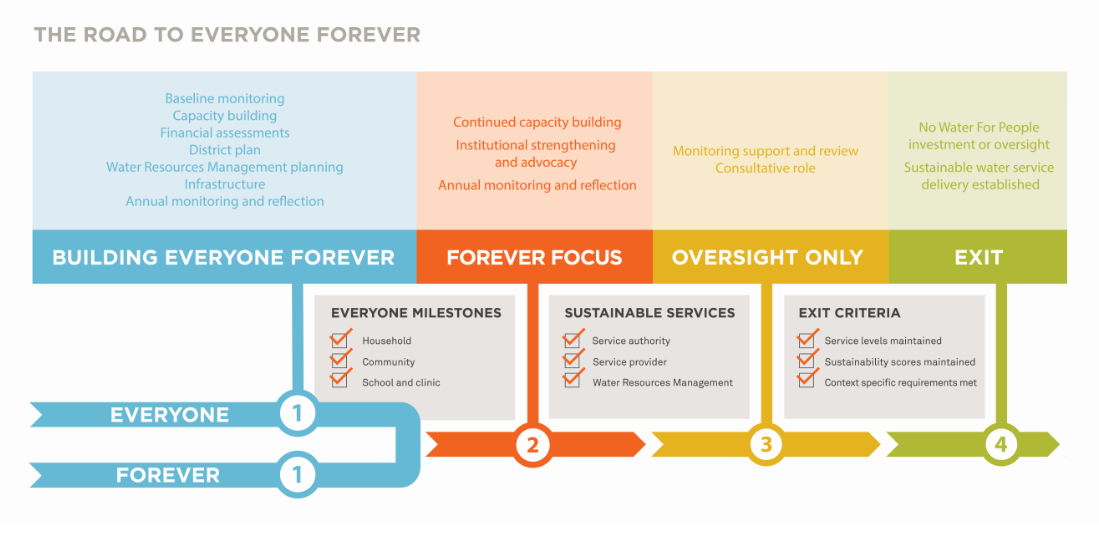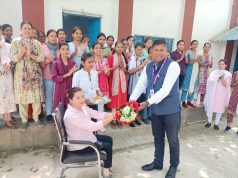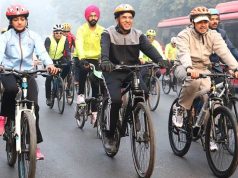This Non-Profit is Creating a Water Secure Future for ‘Everyone Forever’
“Access to water was always an issue for us. Treading miles and for hours in a day to meet our water requirement was a daily routine. It would lead to my seven-year-old daughter missing school often to help me out,” laments Vasanti Belsare, a 32-year-old resident from Bhandri village in Maharashtra. Millions of rural women have a similar story to tell of numerous missed opportunities, strife, and hardships due to shortage of water.
Working towards this cause is Water For People India, which promotes safe water, sanitation, and hygiene (WASH) services to households, communities, and public institutions (schools, Anganwadi centers, and primary health care centers) with an aim to reach ‘Everyone’ in a district with safe and reliable WASH services ‘Forever’. This means every single person – even the hardest to reach – has access to high-quality WASH services. Ms Meena Narula, Country Director, Water For People India believes, “Access to safe and reliable drinking water and sanitation, and hygiene promotion directly impacts the quality of life.”
India is home to one-sixth of the world’s population. This makes universal access to safe drinking water and sanitation a key global priority. While the national and state programmes have prioritized sustainable access to drinking water, there are slippages in source sustainability, operations, and maintenance resulting in 19% of habitations being only partially covered with water supply. Also, nearly 65,000 habitations are affected by water contamination, including iron, arsenic, nitrate, and fluoride and biological pathogens.
The Government’s flagship programmes – Swachh Bharat (Clean India) Mission, National Rural Drinking Water Program, and now the Jal Jeevan Mission – are being implemented to ensure all rural households have access to safe and sustainable drinking water and improved sanitation facilities.
In line with the Government’s programmes, Water For People India is working to design and implement high-quality WASH programmes that directly contribute to improved health and well-being of people. This non-profit organisation came into existence with its initial operations in West Bengal in 1996 through an arsenic mitigation programme in North 24 Parganas and Nadia districts. Since then, Water For People India has emerged as a pioneer in the WASH sector, expanding in scope and geography to ensure safe and sustainable WASH services in communities and public institutions, including schools.
Today, Water For People India is an active member of various state and national committees convened at the national, state and sub-state level by the Ministry of Drinking Water and Sanitation (MoDWS) (now the Ministry of Jal Shakti), Lohiya Swachh Bihar Abhiyan, Sarva Siksha Abhiyan, and Mission Nirmal Bangla.

The organisation believes in leveraging ground up and top down approach – empowering communities and collaborating with the governments and private sector so that the water systems are protected, managing institutions are functional and funded, sanitation services are available, and communities are self-reliant.
Water For People India has been strengthening the rural sanitation supply chain through the development of ‘points of purchase,’ or sanitation shops. The cluster level federations, farmer producer organizations, rural sanitary marts, and self-help groups are encouraged to start their sanitation one-stop shops. The initiative has supported more than 100 enterprises to date. These enterprises have been instrumental in the construction of nearly 45,000 toilets in select districts of Bihar, West Bengal, and Odisha.
In addition, an e-catalogue has been developed in partnership with MoDWS, Government of India to promote locally appropriate sanitation technologies.
Water For People India promotes key behaviours for the usage of toilets, handwashing practices at critical times, safe storage and water handling practices, and creating awareness on conservation of water. An integrated approach of ‘Inspire, Activate and Sustain’ has been designed for continuous reinforcement of positive WASH behaviours.
Ms. Narula explains, “To advance its commitment to the national drinking water and sanitation goals, aligned to the UN Sustainable Development Goals, Water For People India has been carefully supporting and engaging with robust institutions for exchange of technical knowledge and implementation of locally appropriate solutions, operated and managed at the lowest levels of governance.”
Key social and behaviour change interventions include community-led approaches to sanitation; Inspire activities like multi-disciplinary shows; Activate activities such as street plays and magic shows; and Sustain activities including film screenings around water and sanitation; and use of information, education and communication materials.
In 2018, Water For People India in partnership with National Stock Exchange initiated ‘Swaccho Nirapad Parivesh’ (Clean and Safe Environment) in Rajnagar block of Birbhum district, West Bengal. So far WASH retrofitting interventions have been facilitated in 40 schools reaching out to more than 4,000 students and teachers with access to improved WASH facilities. Apart from this, it has organised awareness and community triggering events in 26 locations covering five Gram Panchayats to communicate the message on the importance of toilet usage. More than 1,000 mothers have been oriented on critical hygiene messages like handwashing at critical times and the linkage between sanitation and nutrition at Anganwadi centres.
“To overcome the challenges of gender equity and social exclusion, we highlight the important role women play in addressing water and sanitation shortages and in the development process through our programmes. In addition to engaging with adolescents and women, we look out for ways to engage men to address attitudinal and structural barriers,” points out Ms. Narula.
Together with local, state and the national government of India, Water For People India is committed to reaching important milestones in its journey towards providing high-quality drinking water and sanitation services for ‘Everyone Forever’.













